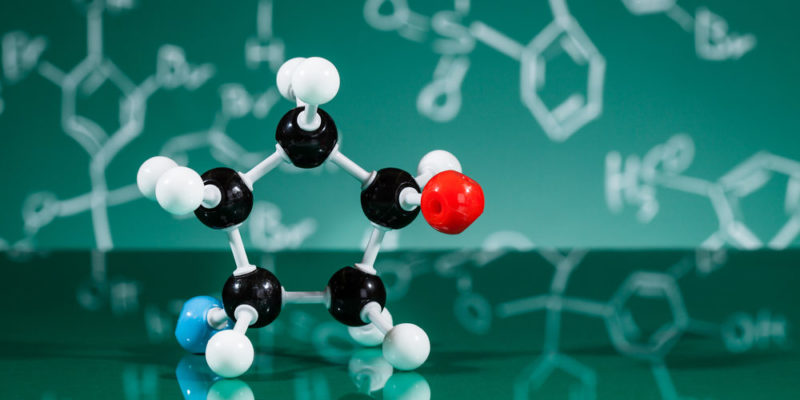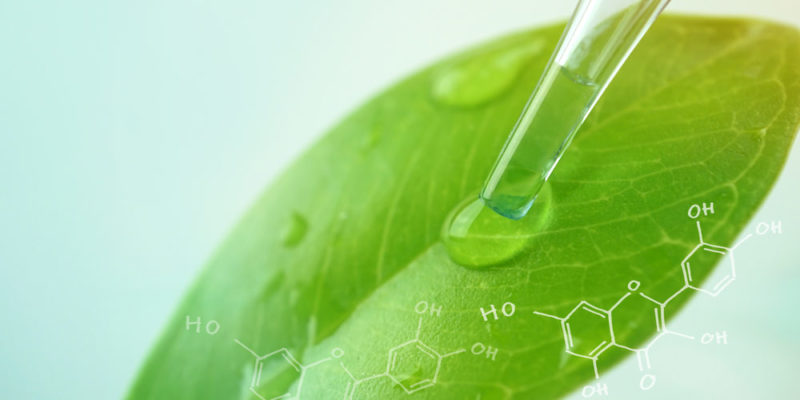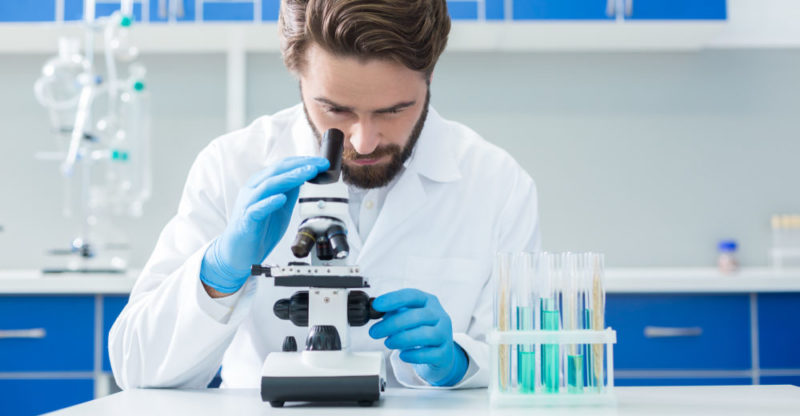We explain what organic chemistry is, the compounds it studies and how it is classified. Also, what are its characteristics and examples.
What is organic chemistry?
Organic chemistry or carbon chemistry is the branch of chemistry that focuses its interests on the study of organic substances and compounds , that is, those that have carbon and hydrogen as their combinatorial basis , although they may also have oxygen , sulfur , nitrogen , phosphorus and halogens .
The chemical elements that make up organic compounds are considered essential for life .
Organic chemistry is interested in the structure, behavior, properties, uses and origin of this type of chemical compounds, fundamental not only for our understanding of life and the processes that sustain it, but also for most of the energy and industrial processes that humanity has developed over the centuries.
The origin of its name comes from certain theories in vogue until the 19th century, which assumed that all organic compounds were necessarily residues of living beings , a theory that assumed the existence of a "vital force"".
History of organic chemistry

Organic chemistry became an important branch of chemistry in the 20th century , when new methods of investigating substances of plant and animal origin became possible.
However, as early as 1828 the German chemist Friedrich Wöhler had realized that an inorganic substance such as ammonium cyanate could be converted into an organic substance such as urea, present in the urine of many animals , thus contradicting the theory that organic compounds required the obligatory intervention of a living being.
Differences Between Organic and Inorganic Chemistry
The fundamental difference between these two branches of science lies in the type of substances in which each is interested:
- Organic Chemistry . It focuses on compounds with carbon and hydrogen as the main constituents, fundamental to the chemistry of life.
- Inorganic Chemistry . It deals with the rest of the elements, whose participation in vital substances is possible, but not as its essential elements. Thus, there are inorganic compounds that contain carbon and hydrogen but there are no organic compounds that lack them.
organic compounds
 Modern chemists consider organic elements to be those that most usually appear in this type of compound, such as carbon (C), hydrogen (H), sulfur (S), oxygen (O), nitrogen (N) and all halogens. This does not mean that other organic and non-organic elements are not present in organic substances.
Modern chemists consider organic elements to be those that most usually appear in this type of compound, such as carbon (C), hydrogen (H), sulfur (S), oxygen (O), nitrogen (N) and all halogens. This does not mean that other organic and non-organic elements are not present in organic substances.In general, organic compounds are poor conductors of heat and electricity , some are soluble in nonpolar solvents, and others in water , and are combustible.
Classification of organic compounds
Organic compounds can be classified into:
- aromatic hydrocarbons . They are cyclic and stable organic compounds, which have alternating single and double carbon-carbon bonds in their structure.
- Aliphatic hydrocarbons . They are simple non-aromatic hydrocarbons , that is, they have a structure in the form of a linear or cyclic chain, but without alternating double and single bonds between their carbon atoms .
- heterocyclic . They are organic compounds in whose cyclic structure one or more of its carbon atoms has been replaced by atoms of other elements, such as nitrogen, sulfur or oxygen.
- Organometallics . They are organic compounds whose carbon atoms are covalently bonded to a metal atom.
- polymers . They are large macromolecular chains made up of smaller units (monomers) and linked together by covalent bonds.
Relationship with biology
 Organic chemistry is one of the branches of chemistry that collaborates most closely with biology , giving rise to biochemistry. The main focus of this collaboration is related to metabolism , that is, with the molecular processes that take place in the body of living beings.
Organic chemistry is one of the branches of chemistry that collaborates most closely with biology , giving rise to biochemistry. The main focus of this collaboration is related to metabolism , that is, with the molecular processes that take place in the body of living beings.
Origin of organic compounds
 There are various forms of production of organic substances depending on whether they are produced with the intervention or not of a living being:
There are various forms of production of organic substances depending on whether they are produced with the intervention or not of a living being:
- In-vivo processes . This term means "inside living beings", and refers to those compounds and substances that living organisms synthesize to carry out their different processes of nutrition, reproduction , growth and regulation. Some of these compounds are:
- Proteins . They are macromolecules composed of amino acids (smaller molecules that have an amino functional group (-NH 2 ) at one end and a carboxyl group (-COOH) at the other end). They are very important to sustain the life of living beings.
- carbohydrates . They are molecules made up of carbon, hydrogen and oxygen. They are also called ' sugars ' and have a fundamental role in the life of plants and animals.
- lipids . They are composed mainly of carbon and hydrogen. They serve as energy reserves in living beings.
- nucleic acids . Its structure is made up of carbon, hydrogen, oxygen, nitrogen and phosphorus. They store the genetic information of living beings and transmit it from generation to generation.
- Ex-vivo processes . They are organic compounds produced in laboratories or environments in which no living being has intervened. For example:
- Geological processes . Some sedimentary processes can maintain organic matter under specific conditions of pressure and temperature long enough to form more complex organic compounds, such as oil or natural gas.
- Planetary Synthesis . Organic substances such as formic acid have been found in the tails of some comets, suggesting that the conditions for their spontaneous formation were once favorable in the solar system .
- Laboratory . Many organic substances would not exist without the manipulation of the human being , capable of creating and recreating them in specialized laboratories.
isomerism
One of the peculiarities of organic compounds that is essential for their chemical study has to do with the possibility that the same organic molecule (with the same atoms in the same proportion) is structurally ordered in a different way and gives rise to a compound. different.These compounds that share the same number of elements but not the same structure are known as "isomers." For example, ethanol and dimethyl ether are isomers, both having the same amount of carbon, hydrogen, and oxygen, but different molecular structures.
Importance of organic chemistry
 Organic chemistry offers humanity not only a greater understanding of the dynamics of the formation of life (including its own body) but also the possibility of manufacturing medicines and taking advantage of the unique properties of organic compounds for various industrial processes , from textiles, plastics , solvents, to the energy industry and petrochemicals, which have a central place in the contemporary world.
Organic chemistry offers humanity not only a greater understanding of the dynamics of the formation of life (including its own body) but also the possibility of manufacturing medicines and taking advantage of the unique properties of organic compounds for various industrial processes , from textiles, plastics , solvents, to the energy industry and petrochemicals, which have a central place in the contemporary world.
examples of organic compounds
Some possible examples of organic compounds are:
- Benzene ( C6H6 ) _
- Glucose ( C6H12O6 ) _ _ _
- Lactic acid (C 3 H 6 O 3 )
- the diesel
- animal fat
- antibiotics _
Processes used by organic chemistry
 There are several everyday examples of processes involving organic chemistry:
There are several everyday examples of processes involving organic chemistry:
- The manufacture of soaps from animal and vegetable fats .
- The fermentation and distillation of sugars ( carbohydrates ) to obtain alcohols and manufacture beverages, solvents and various products.
- The manufacture of starches by plants during their photosynthesis.
- The processes for obtaining various petroleum derivatives, such as plastic, gasoline, benzene or nylon.
- The creation of specific antibiotics for certain types of bacteria .
The above content published at Collaborative Research Group is for informational and educational purposes only and has been developed by referring reliable sources and recommendations from experts. We do not have any contact with official entities nor do we intend to replace the information that they emit.
Luke is passionate about fostering student involvement and connection. He studied psychology for his major and likes learning about the past. Luke aims to specialize in artificial intelligence and cybersecurity. .
Leave a reply
Your email address will not be published. Required fields are marked *Recent post

Sport: What Is It, Types, Risks, Features, Characteristics and Examples

Dogs: Emergence, Features, Characteristics, Feeding and Breeds

Story: Definition, Elements, Structure, Features and Characteristics

